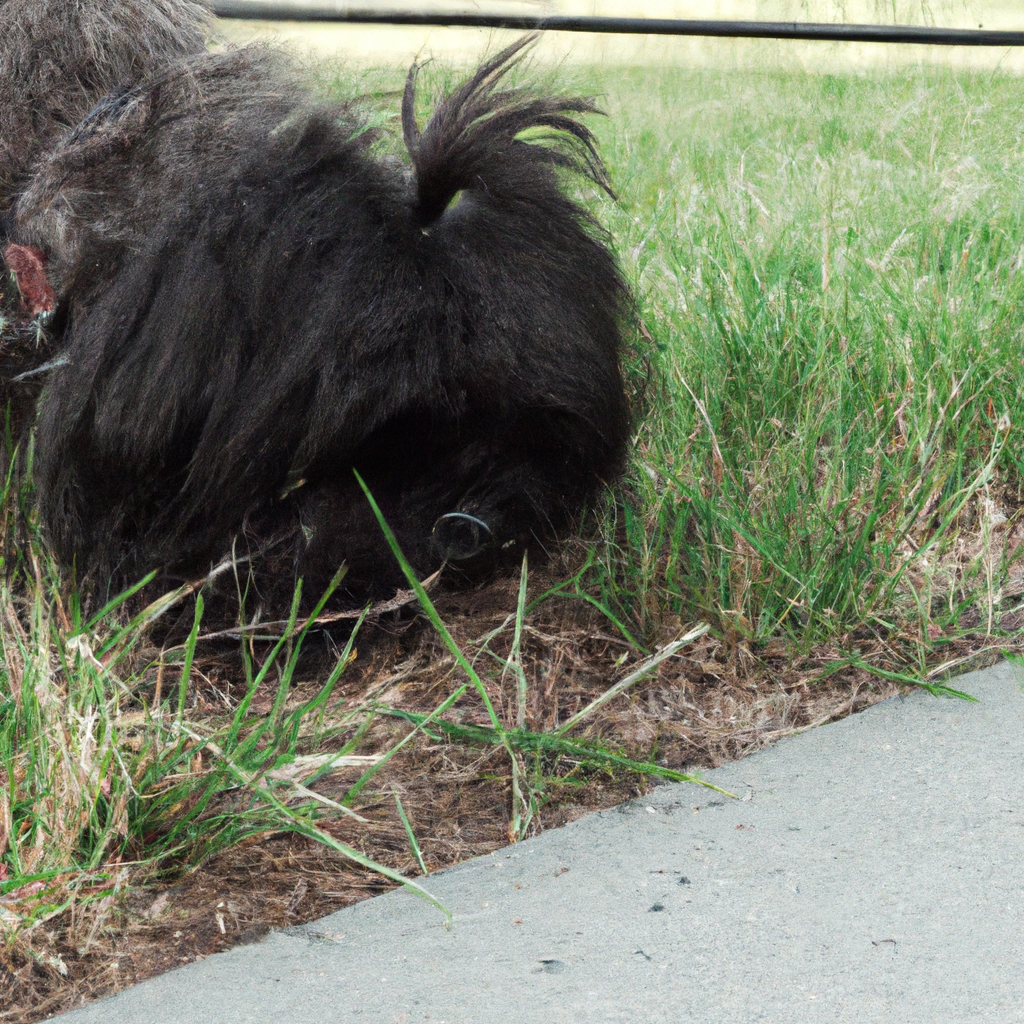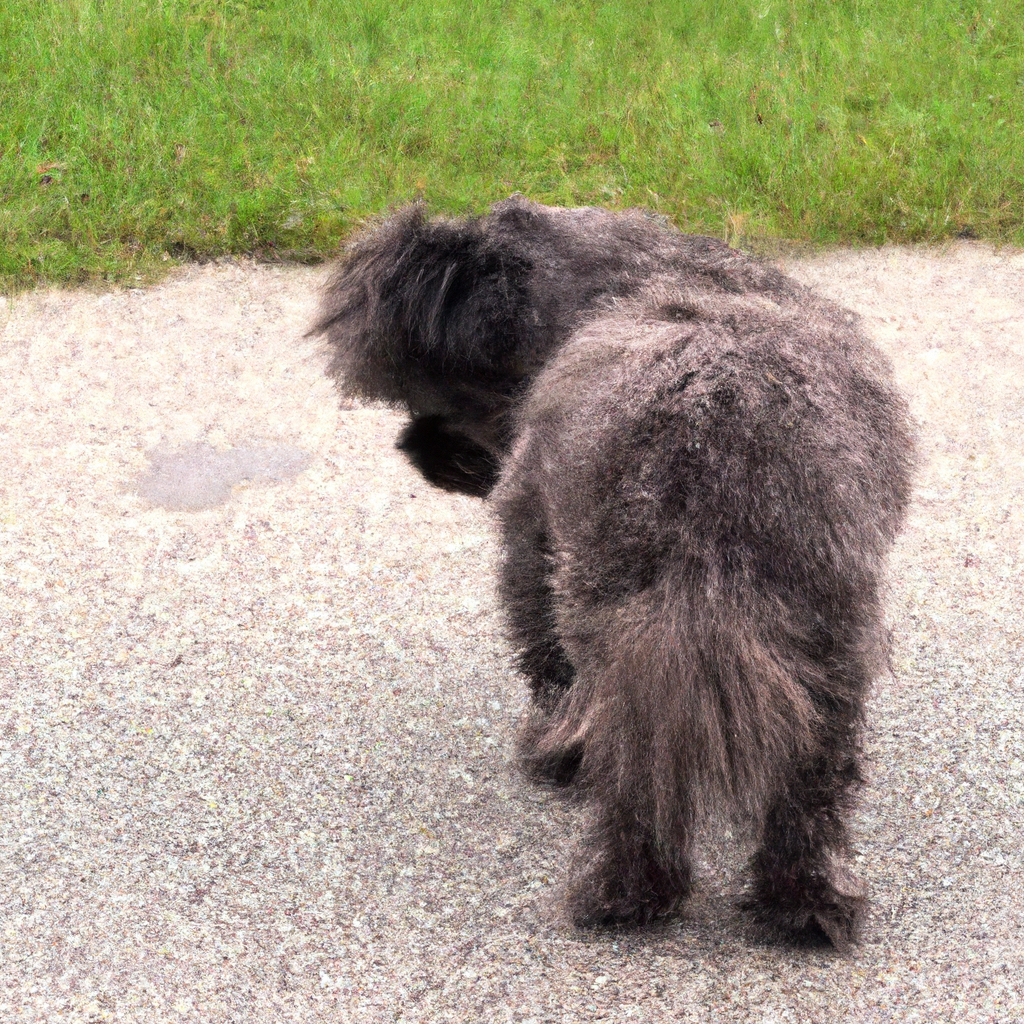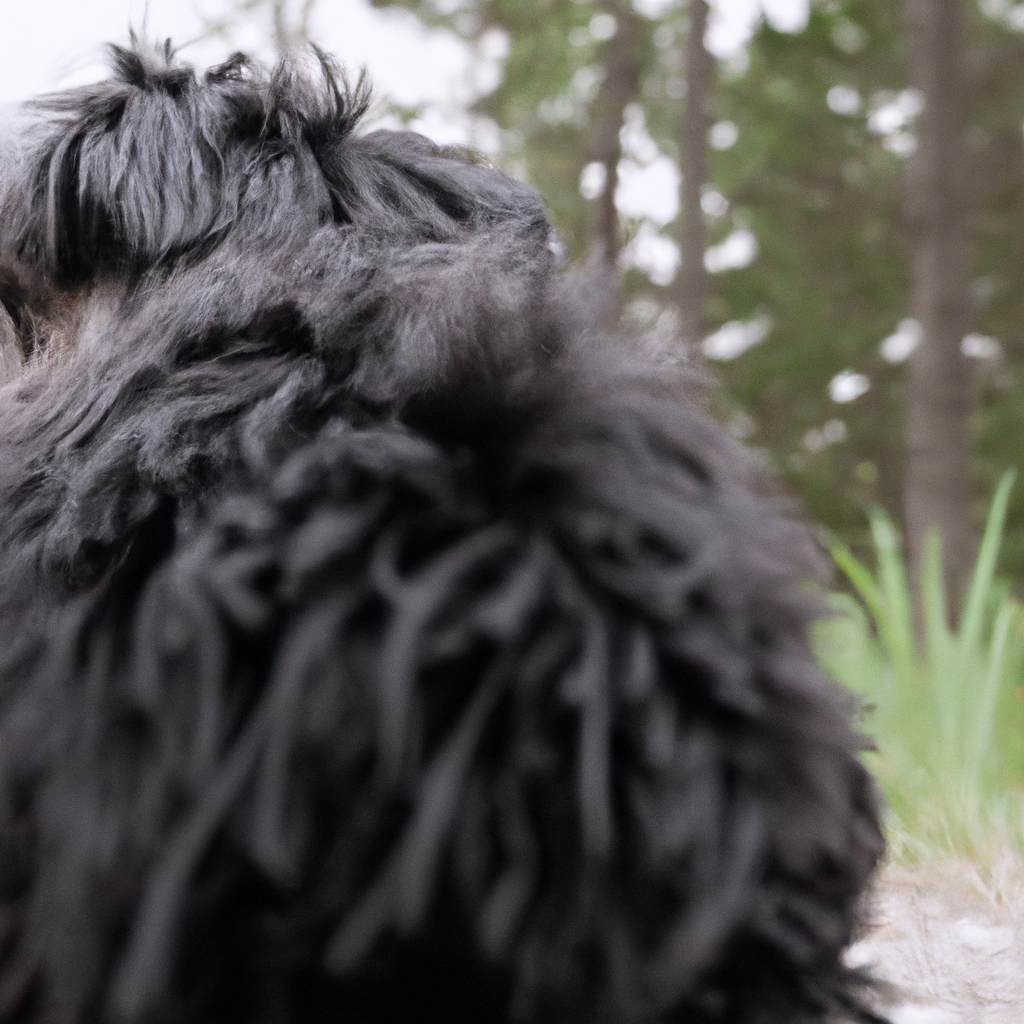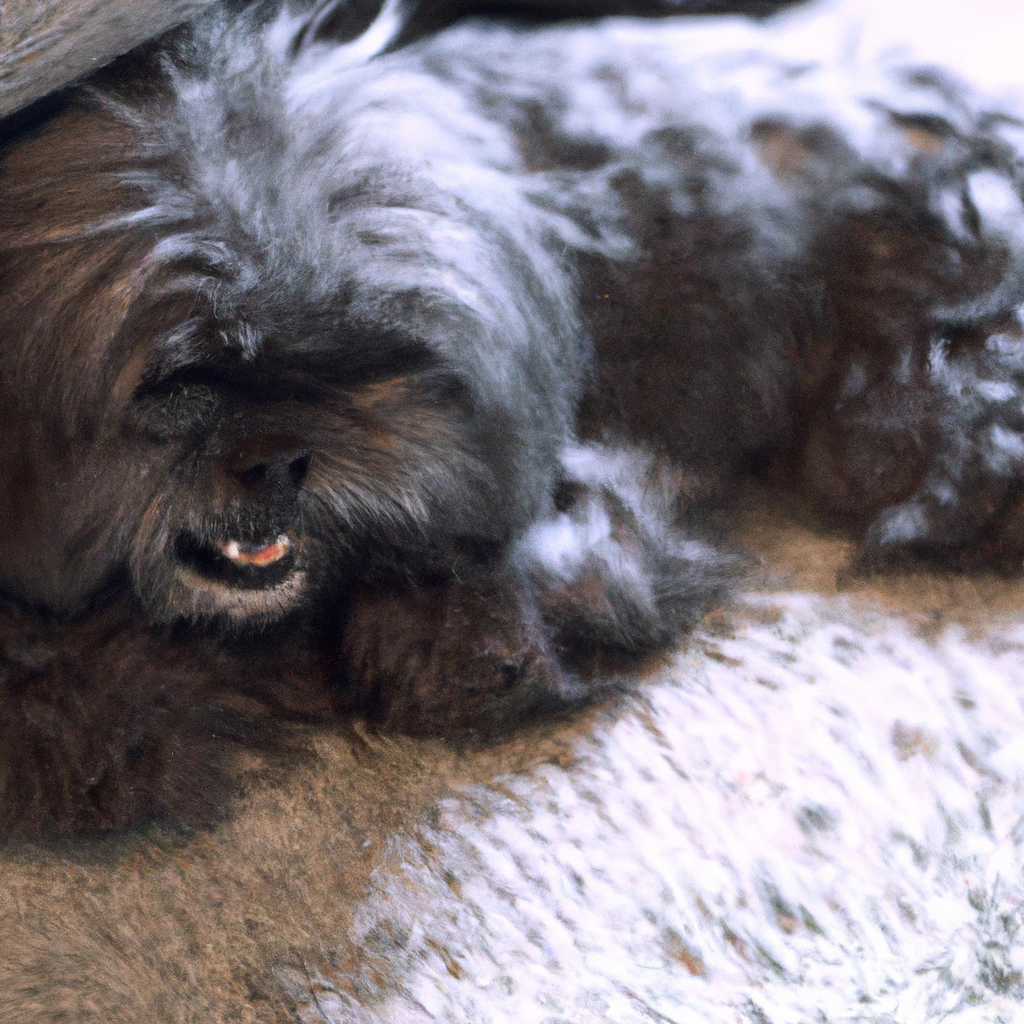Affenpinschers, also known as “Monkey Terriers,” are small but energetic dogs known for their distinctive appearance and playful, sometimes stubborn, behavior. Effective strategies to deal with Affenpinschers behavior involve understanding their unique temperament, providing them with sufficient physical and mental stimulation, and employing consistent, positive reinforcement training methods. These strategies can help manage their high energy levels, curb potential behavioral issues, and foster a healthy, happy relationship between the Affenpinscher and its owner.
Understanding the Affenpinscher: Key Strategies for Managing Their Behavior
Affenpinschers, often referred to as “Monkey Terriers” due to their distinct primate-like appearance, are small but mighty dogs known for their playful and sometimes stubborn nature. Understanding their behavior and knowing how to manage it effectively is crucial for any Affenpinscher owner.
Affenpinschers are known for their bold and adventurous spirit. They are curious by nature and love to explore their surroundings. This curiosity, while endearing, can sometimes lead to mischief if not properly managed. One effective strategy to deal with this behavior is to provide them with plenty of mental stimulation. This can be achieved through interactive toys, puzzle feeders, and regular training sessions. By keeping their minds engaged, you can help curb their natural inclination towards mischief.
Another key aspect of Affenpinschers’ behavior is their strong territorial instinct. They are fiercely protective of their family and their home, which can sometimes lead to aggressive behavior towards strangers or other animals. To manage this, it’s important to socialize your Affenpinscher from a young age. Regularly expose them to different people, environments, and other animals to help them become more comfortable in various situations.
Affenpinschers are also known for their stubborn streak. They are intelligent dogs with a strong will, which can sometimes make training a challenge. However, don’t let this deter you. Consistency is key when training an Affenpinscher. Establish clear rules and stick to them. Reward-based training methods, where good behavior is rewarded with treats or praise, are particularly effective with this breed. Remember, patience is crucial. It may take time, but with persistence, your Affenpinscher will eventually understand what is expected of them.
Despite their sometimes challenging behavior, Affenpinschers are also known for their affectionate and loyal nature. They form strong bonds with their families and love to spend time with them. To foster this bond and encourage good behavior, make sure to spend quality time with your Affenpinscher. Regular play sessions, walks, and cuddle time can go a long way in making your Affenpinscher feel loved and secure.
Affenpinschers, like all dogs, also need regular exercise to stay healthy and happy. However, due to their small size, they don’t require as much physical activity as larger breeds. Short, daily walks combined with some playtime at home are usually sufficient. Regular exercise can also help manage potential behavioral issues by burning off excess energy.
Lastly, remember that every Affenpinscher is unique. What works for one may not work for another. It’s important to get to know your Affenpinscher and understand their individual needs and preferences. This will allow you to tailor your approach to managing their behavior more effectively.
In conclusion, while Affenpinschers can sometimes be a handful, with the right strategies, their behavior can be effectively managed. By providing mental stimulation, socializing them from a young age, being consistent with training, spending quality time with them, ensuring they get regular exercise, and understanding their individual needs, you can enjoy a rewarding and loving relationship with your Affenpinscher.
Training Techniques for Your Affenpinscher: A Comprehensive Guide
Affenpinschers, often referred to as “Monkey Terriers” due to their distinct, primate-like appearance, are a small but spirited breed. Known for their playful and sometimes stubborn nature, these dogs can be a handful for first-time dog owners. However, with the right training techniques, dealing with Affenpinschers behavior can be a rewarding experience.
Firstly, it’s important to understand that Affenpinschers are intelligent and quick learners. They respond well to positive reinforcement, which is a method of training that rewards good behavior. This can be in the form of treats, praise, or a favorite toy. When your Affenpinscher performs a desired action, immediately reward them. This will help them associate the action with a positive outcome, encouraging them to repeat it in the future.
However, Affenpinschers are also known for their stubborn streak. This can make training a bit challenging at times. It’s crucial to remain patient and consistent. If your Affenpinscher refuses to perform a command, don’t give up. Instead, repeat the command until they comply, and then reward them. This will help reinforce the idea that obedience leads to rewards.
Socialization is another key aspect of training your Affenpinscher. These dogs are naturally protective and can be wary of strangers. To prevent this from turning into aggression, it’s important to expose your Affenpinscher to a variety of people, places, and situations from a young age. This will help them become more comfortable in different environments and with different people.
Affenpinschers are also known for their high energy levels. Regular exercise is essential to keep them healthy and prevent behavioral problems. This can be in the form of daily walks, playtime in the yard, or even agility training. Not only will this help burn off excess energy, but it will also provide mental stimulation, which is crucial for this intelligent breed.
While training your Affenpinscher, it’s important to remember that every dog is unique. What works for one Affenpinscher may not work for another. It’s crucial to pay attention to your dog’s individual needs and adjust your training methods accordingly. For example, some Affenpinschers may respond better to verbal praise, while others may prefer treats.
It’s also worth noting that training should be an enjoyable experience for both you and your Affenpinscher. Avoid harsh training methods, as these can cause fear and anxiety, which can lead to behavioral problems. Instead, focus on building a strong, positive relationship with your Affenpinscher. This will not only make training more effective, but it will also strengthen the bond between you and your dog.
In conclusion, training an Affenpinscher requires patience, consistency, and a positive approach. By understanding their unique characteristics and needs, you can develop effective strategies to deal with their behavior. Remember, the goal of training is not just to have an obedient dog, but also to foster a loving and respectful relationship with your furry friend. With the right techniques, you can turn the sometimes challenging task of training your Affenpinscher into a rewarding journey of mutual understanding and respect.
Affenpinscher Behavior Problems: Effective Solutions
Affenpinschers, often referred to as “Monkey Terriers” due to their distinctive, primate-like appearance, are small but mighty dogs known for their playful and sometimes stubborn behavior. While their spirited nature can be endearing, it can also lead to certain behavioral issues. However, with the right strategies, these challenges can be effectively managed, leading to a harmonious relationship between you and your Affenpinscher.
One common issue with Affenpinschers is their high energy levels. These dogs are known for their lively and sometimes hyperactive behavior. While this can be entertaining, it can also lead to destructive behaviors if not properly managed. One effective strategy to deal with this is regular exercise. Affenpinschers need daily walks and playtime to burn off their energy. Providing them with toys and engaging them in games can also help keep them occupied and less likely to engage in destructive behaviors.
Another common issue with Affenpinschers is their stubbornness. These dogs are known for their independent nature, which can sometimes come across as stubbornness. This can make training a bit of a challenge. However, with patience and consistency, you can overcome this hurdle. Positive reinforcement is key when training an Affenpinscher. Rewarding good behavior with treats, praise, or playtime can encourage your dog to repeat those behaviors. It’s also important to start training early and to be consistent with your commands.
Affenpinschers are also known for their territorial behavior. They can be protective of their space and their family, which can sometimes lead to aggressive behaviors. Socialization is an effective strategy to deal with this issue. Exposing your Affenpinscher to different people, animals, and environments can help them become more comfortable in various situations. It’s best to start socialization early, ideally when your Affenpinscher is still a puppy.
Barking is another common behavior problem with Affenpinschers. These dogs are known for their loud and frequent barking, which can be disruptive. Training your Affenpinscher to understand and respond to commands like “quiet” or “enough” can help manage this issue. It’s also important to understand that barking is a form of communication for dogs. If your Affenpinscher is barking excessively, it could be a sign that they’re bored, anxious, or in need of attention.
Lastly, Affenpinschers can sometimes exhibit separation anxiety. These dogs form strong bonds with their families and can become distressed when left alone. To manage this, try to avoid leaving your Affenpinscher alone for long periods. If you need to be away, consider hiring a pet sitter or taking your dog to a daycare facility. Gradually increasing the amount of time your dog spends alone can also help them become more comfortable with being alone.
In conclusion, while Affenpinschers can exhibit certain behavioral issues, these can be effectively managed with the right strategies. Regular exercise, consistent training, early socialization, understanding their communication, and managing their separation anxiety can all contribute to a well-behaved Affenpinscher. Remember, every dog is unique and what works for one might not work for another. It’s important to be patient, consistent, and understanding as you navigate your Affenpinscher’s behavior. With time and effort, you can foster a strong, positive relationship with your Affenpinscher.
How to Deal with Affenpinscher Aggression: Proven Strategies

Affenpinschers, also known as “Monkey Terriers,” are small but mighty dogs known for their distinctive appearance and lively personality. However, like any breed, they can sometimes exhibit aggressive behavior. This can be a challenge for pet owners, but with the right strategies, it’s possible to manage and even eliminate this behavior.
Firstly, it’s important to understand that aggression in Affenpinschers, like any dog breed, is often a response to fear or anxiety. These dogs are small and can feel threatened easily, leading to defensive aggression. Therefore, one of the most effective strategies to deal with this behavior is to ensure that your Affenpinscher feels safe and secure at all times. This can be achieved by providing a stable, predictable environment and avoiding situations that may cause stress or fear.
Socialization is another key strategy in managing Affenpinscher aggression. This breed is known for being somewhat territorial and can be wary of strangers. By exposing your Affenpinscher to a variety of people, places, and experiences from a young age, you can help them become more comfortable in different situations and reduce their tendency to react aggressively.
Training is also crucial when dealing with Affenpinscher aggression. This breed is intelligent and eager to please, making them highly trainable. However, they can also be stubborn, so it’s important to use positive reinforcement methods. Rewarding good behavior with treats, praise, or play can encourage your Affenpinscher to behave appropriately. On the other hand, punishing bad behavior can often exacerbate aggression, so it’s best to avoid this approach.
In addition to these strategies, it’s also important to consider your Affenpinscher’s physical needs. This breed is energetic and requires regular exercise to burn off excess energy. Without enough physical activity, Affenpinschers can become frustrated and more likely to exhibit aggressive behavior. Therefore, ensuring your dog gets plenty of exercise can be an effective way to manage aggression.
Finally, if your Affenpinscher’s aggressive behavior persists despite your best efforts, it may be worth seeking professional help. A professional dog trainer or behaviorist can provide personalized advice and strategies based on your dog’s specific needs and circumstances. In some cases, aggression may be a symptom of an underlying health issue, so it’s also a good idea to consult with a veterinarian.
In conclusion, dealing with Affenpinscher aggression can be challenging, but with patience, understanding, and the right strategies, it’s possible to manage this behavior effectively. Remember, every dog is unique, and what works for one Affenpinscher may not work for another. Therefore, it’s important to be patient and persistent, and to try different strategies until you find what works best for your dog. With time and effort, you can help your Affenpinscher become a well-behaved and happy member of your family.
The Affenpinscher Temperament: Tips for Successful Training
Affenpinschers, often referred to as “Monkey Terriers” due to their distinct primate-like appearance and playful nature, are small but mighty dogs with a big personality. They are known for their bold, stubborn, and protective temperament, which can sometimes pose a challenge for their owners. However, with the right strategies, dealing with Affenpinschers behavior can be a rewarding experience.
Understanding the Affenpinscher’s temperament is the first step towards successful training. These dogs are naturally curious, lively, and confident. They are also known for their loyalty and protective nature, which can sometimes translate into stubbornness or territorial behavior. This is why it’s crucial to establish a strong bond and clear communication with your Affenpinscher from the start.
One effective strategy is positive reinforcement. Affenpinschers respond well to rewards, whether it’s a tasty treat, a favorite toy, or simply praise and affection. When your Affenpinscher behaves well or successfully performs a command, reward them immediately. This will help them associate good behavior with positive outcomes, encouraging them to repeat it.
However, it’s important to be consistent with your rewards. If you reward your Affenpinscher for a behavior one day and then ignore it the next, they may become confused and unsure of what is expected of them. Consistency is key in helping your Affenpinscher understand and follow the rules.
Another strategy is socialization. Affenpinschers can be wary of strangers and other dogs, which can lead to aggressive behavior if not properly managed. To prevent this, expose your Affenpinscher to a variety of people, environments, and other animals from a young age. This will help them become more comfortable in different situations and reduce their tendency to react aggressively.
Training sessions should be short and fun. Affenpinschers have a short attention span and can easily become bored or frustrated with long, repetitive training sessions. Keep sessions short, around 5 to 10 minutes, and incorporate play and rewards to keep your Affenpinscher engaged and motivated.
Patience is also crucial when dealing with Affenpinschers behavior. These dogs are intelligent and quick learners, but their stubborn nature can sometimes slow down the training process. Don’t get discouraged if your Affenpinscher doesn’t immediately grasp a command or behavior. Keep practicing, stay patient, and remember that every dog learns at their own pace.
Lastly, remember that every Affenpinscher is unique. What works for one may not work for another. Pay attention to your Affenpinscher’s individual personality and preferences, and tailor your training strategies accordingly. This will not only make training more effective, but also strengthen your bond with your Affenpinscher.
In conclusion, dealing with Affenpinschers behavior can be a challenge, but with understanding, patience, and the right strategies, it can also be a rewarding experience. Remember to stay consistent with your rewards, socialize your Affenpinscher, keep training sessions short and fun, and tailor your strategies to your Affenpinscher’s individual personality. With time and effort, you can successfully train your Affenpinscher and enjoy a strong, positive relationship with them.
Affenpinscher Training: How to Encourage Good Behavior
Affenpinschers, often referred to as “Monkey Terriers” due to their distinct primate-like appearance and playful nature, are a small but mighty breed. They are known for their bold and stubborn temperament, which can sometimes make training a bit of a challenge. However, with the right strategies, you can effectively deal with Affenpinschers behavior and encourage good habits.
Firstly, it’s important to understand that Affenpinschers are intelligent and quick learners. They respond well to positive reinforcement, so make sure to reward good behavior with treats, praise, or playtime. This will motivate your Affenpinscher to repeat the desired behavior. On the flip side, it’s crucial to avoid harsh punishment as it can lead to fear and aggression, which are counterproductive to training.
Consistency is key when training Affenpinschers. They thrive on routine and predictability, so try to keep training sessions at the same time each day and use consistent commands. This will help your Affenpinscher understand what is expected of them and will make training more effective. Remember, patience is a virtue when dealing with this breed. They can be stubborn at times, but with persistence, they will eventually catch on.
Socialization is another important aspect of Affenpinscher training. These dogs are naturally protective and can be wary of strangers. Early socialization can help them become more comfortable around new people and environments. Introduce your Affenpinscher to a variety of people, animals, and situations to help them become well-rounded and confident dogs.
Affenpinschers are also known for their high energy levels. Regular exercise can help manage this energy and prevent behavioral problems. A tired Affenpinscher is a well-behaved Affenpinscher, so make sure to provide plenty of physical and mental stimulation. This can include walks, playtime, puzzle toys, or agility training.
Training an Affenpinscher can also be made easier by understanding their natural instincts. They were originally bred to hunt rats and other small vermin, so they have a strong prey drive. Use this to your advantage by incorporating games that satisfy this instinct, such as fetch or tug-of-war. This can make training more enjoyable for your Affenpinscher and can help reinforce good behavior.
Lastly, it’s important to build a strong bond with your Affenpinscher. They are loyal and affectionate dogs that thrive on human companionship. Spend quality time with your Affenpinscher and show them love and respect. This will help build trust and make training more effective.
In conclusion, training an Affenpinscher requires patience, consistency, and understanding. By using positive reinforcement, providing regular exercise, socializing your Affenpinscher, and building a strong bond, you can effectively deal with Affenpinschers behavior and encourage good habits. Remember, every dog is unique and what works for one may not work for another. It’s important to be flexible and adapt your training methods to suit your Affenpinscher’s individual needs and personality. With time and effort, you can have a well-behaved and happy Affenpinscher.
Dealing with Stubbornness in Affenpinschers: Effective Strategies
Affenpinschers, affectionately known as “Monkey Dogs,” are small but mighty creatures known for their distinctive appearance and lively personality. However, they can also be quite stubborn, which can sometimes pose a challenge for their owners. But don’t worry, with the right strategies, dealing with the stubbornness of Affenpinschers can be a rewarding and enriching experience.
Firstly, it’s important to understand that Affenpinschers are naturally curious and independent dogs. They love to explore their surroundings and make their own decisions, which can sometimes come across as stubbornness. However, this trait can also be seen as a sign of intelligence and determination. So, instead of trying to suppress this trait, it’s more beneficial to channel it in a positive direction.
One effective strategy is to use positive reinforcement. This method involves rewarding your Affenpinscher for good behavior, which encourages them to repeat it. The reward can be anything your dog finds motivating, such as treats, toys, or praise. For instance, if your Affenpinscher sits on command, immediately reward them with a treat and praise. This will help them associate the command with a positive outcome, making them more likely to obey in the future.
Another strategy is to provide mental stimulation. Affenpinschers are intelligent dogs that need mental challenges to keep them engaged. Providing puzzle toys, teaching new tricks, or setting up obstacle courses can help keep their minds sharp and reduce stubborn behavior. Remember, a bored Affenpinscher is often a stubborn Affenpinscher.
Patience is also key when dealing with a stubborn Affenpinscher. Training may take longer than expected, and there may be setbacks along the way. However, it’s important to stay patient and consistent. If you become frustrated, your Affenpinscher will pick up on your emotions and may become more resistant to training. Instead, keep training sessions short and fun, and always end on a positive note.
Socialization is another crucial aspect of dealing with stubbornness in Affenpinschers. These dogs are naturally sociable and enjoy being around people and other animals. Regular socialization can help reduce stubborn behavior by providing a variety of experiences and teaching them how to behave in different situations. This can be achieved by taking your Affenpinscher to dog parks, arranging playdates with other dogs, or enrolling them in doggy daycare.
Lastly, it’s important to remember that every Affenpinscher is unique and what works for one may not work for another. It may take some trial and error to find the strategies that work best for your Affenpinscher. Don’t be afraid to seek professional help if needed. Dog trainers and behaviorists can provide valuable insights and techniques to help manage stubborn behavior.
In conclusion, dealing with the stubbornness of Affenpinschers can be challenging, but with the right strategies, it can also be a rewarding experience. By understanding their natural traits, using positive reinforcement, providing mental stimulation, practicing patience, and promoting socialization, you can effectively manage your Affenpinscher’s stubborn behavior and build a strong, positive relationship with them. Remember, the key is to work with your Affenpinscher’s natural traits, not against them. After all, their stubbornness is part of what makes them so endearing.
Affenpinscher Behavior: How to Handle Barking and Other Issues
Affenpinschers, often referred to as “Monkey Terriers” due to their distinct primate-like appearance, are small but mighty dogs known for their playful and sometimes stubborn behavior. These spirited canines are full of personality, but their lively nature can sometimes lead to behavioral issues such as excessive barking, stubbornness, and a tendency to be territorial. However, with the right strategies, you can effectively manage these behaviors and foster a harmonious relationship with your Affenpinscher.
Firstly, let’s tackle the issue of excessive barking. Affenpinschers are naturally alert and protective, which can often translate into a lot of noise. They are quick to sound the alarm at every new sight and sound. While this trait makes them excellent watchdogs, it can become problematic, especially in a neighborhood setting. One effective strategy to manage this behavior is through positive reinforcement training. This involves rewarding your Affenpinscher for quiet behavior and ignoring or redirecting them when they bark. For instance, if your Affenpinscher starts barking at a passerby, you can distract them with a toy or command and reward them when they stop barking. Over time, they will learn that quiet behavior earns them treats and praise, while barking does not.
Moving on, Affenpinschers are known for their stubborn streak. This can make training a bit of a challenge. However, don’t let their stubbornness discourage you. Consistency is key when dealing with a stubborn Affenpinscher. Make sure to establish and maintain a routine, as these dogs thrive on predictability. Use positive reinforcement to reward good behavior and gently correct unwanted behavior. Remember, patience is crucial. It may take a little longer for your Affenpinscher to grasp certain commands, but with persistence, they will eventually get there.
Lastly, Affenpinschers can be quite territorial. They are fiercely protective of their family and their space, which can sometimes lead to aggressive behavior. Socialization is an effective strategy to curb this issue. Expose your Affenpinscher to a variety of people, places, and situations from a young age. This will help them become more comfortable in different environments and reduce their territorial tendencies. Additionally, obedience training can also help manage aggressive behavior. Teaching your Affenpinscher commands like “leave it” or “stay” can give you more control in situations where they may become territorial.
In conclusion, while Affenpinschers can present certain behavioral challenges, these can be effectively managed with the right strategies. Remember, every dog is unique and what works for one Affenpinscher may not work for another. It’s important to understand your dog’s individual personality and needs. With patience, consistency, and a lot of love, you can help your Affenpinscher become a well-behaved and happy member of your family. After all, these little dogs with big personalities have a lot of love to give, and their spirited nature is part of what makes them so endearing.In conclusion, effective strategies to deal with Affenpinschers behavior include consistent training from a young age, positive reinforcement, socialization with other dogs and people, providing mental and physical stimulation, and maintaining a calm and patient demeanor. Regular exercise and a balanced diet also contribute to managing their behavior. It’s important to remember that every Affenpinscher has a unique personality and may require different approaches. Professional help from a dog trainer or behaviorist may be beneficial in some cases.





